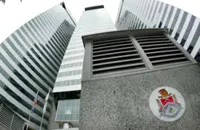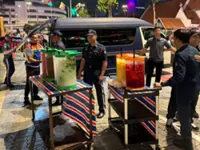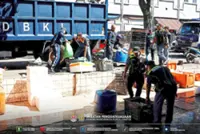KUALA Lumpur City Hall (DBKL) has exceeded its target in salvaging surplus food from Ramadan bazaars across the city, reinforcing its commitment to sustainability through its Zero Waste initiatives.
As part of this effort, two key programmes were implemented: MySaveFood and Food Waste Segregation.
Through MySaveFood, 11,482.89kg of surplus food with an estimated value of over RM139,570 was successfully salvaged, surpassing the initial 10,000kg target,
MySaveFood is a strategic collaboration between DBKL, Gema Malaysia Youth Organisation, SWCorp and traders to collect unsold food which will be distributed to underserved communities.
“The programme aims to reduce food waste and encourage recycling practices among traders and bazaar visitors,” DBKL said in a media statement.

“In addition to supporting underprivileged communities, the programme also positively impacts waste management costs and prevents excess food from being sent to landfills.”
It added that the effort also contributed to a 21,532.28kg reduction in carbon emissions.
The programme, which ran from March 5 to 26, took place at 12 selected bazaar locations in Kuala Lumpur, including Kampung Baru, Wangsa Maju and Bandar Tun Razak.
Meanwhile, the Food Waste Segregation programme diverted 11,990kg of food waste to composting centres, while 24,061kg of non-food waste was recycled.
“The programme is a collaboration between traders and Alam Flora Sdn Bhd to separate food waste for recycling.
“The primary goal of this effort is to reduce the amount of organic waste sent to landfills, aligning with DBKL’s vision of achieving Zero Waste by 2040,” DBKL said.





